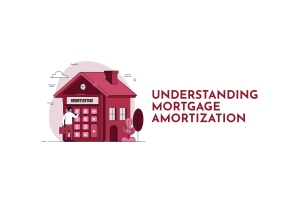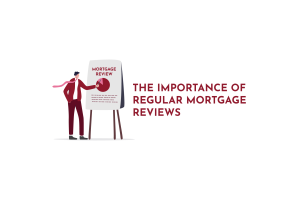In recent years Canadians have faced a myriad of financial hurdles. We entered into a period of real uncertainty with the COVID-19 pandemic and the mandated quarantining that went along with this. Many people’s jobs were affected, and there was a period where many households faced real uncertainty about how they were going to make ends meet if major portions of their income were lost.
As we worked our way through the pandemic, something interesting happened: the government used ultra-low interest rates to spur economic activity — and boy, did it ever. We saw astronomical growth in real estate prices as families jumped at the chance to take advantage of these rates by increasing the size of their mortgages and moving into their dream homes.
However, things overheated, and we landed in a period of high inflation that caused the cost of living to rise steadily. In response, central banks did what they have always done to fight inflation — they raised interest rates, and they did so quickly and by a significant amount. This seemingly perfect storm of global and domestic financial conditions has created exceptionally high pressure on Canadian households to simply hold on to what they have.
With Canadians facing the highest household debt of all G7 nations, it may be time to consider alternative debt management strategies. The good news is that with inflation back within target range, the Bank of Canada has started reducing interest rates again. It may now be a good time to consider using home equity as a way to consolidate your household debts. Read on to learn more about this idea.
In this article:
- How Do You Think About Your Debt?
- Why is it Important to Understand the Difference?
- Pros and Cons Of Debt Consolidation
- Consolidation is for Me! What Next?
How Do You Think About Your Debt?
There are different types of debt that Canadians face, and there needs to be a plan for managing all of it. We often see the terms ‘good debt’ and ‘bad debt’ when we read about personal finance, but it’s not always well explained.
- Good Debt: Typically, this is debt that you repay with regular installments based on a loan agreement. Think of things like a mortgage, student loan, or car loan. Good debt often results in you gaining an asset or skill that offers essential services or provides investment growth.
- Bad Debt: This often involves high-interest rate products with no fixed repayment schedule; think of credit cards and high-interest loans. Because of the high interest rates associated with these products, repayment often becomes more difficult.
The type of debt you have makes a big difference in deciding if consolidation using your home equity is a good strategy. Your mortgage and financial advisors can help you figure out if this is a good plan for you. Don’t have an advisor team? Try contacting someone from The Strata Group of Companies, where they have a complete team of experts across many fields to help you.

Why is it Important to Understand the Difference?
Understanding the difference between good and bad debt is the first step in managing your personal financial situation efficiently. For many people, monthly cash flow is the most important factor in managing household finances. You need to have a firm grasp of what income comes into your home and what expenses go out each month to ensure you can fund your living expenses and service any debts.
If, like many Canadians, you feel like you need help with this, consider reaching out to the team at Strata Wealth & Risk Management to book an appointment for a cash flow planning session.
Once you have a handle on your household cash flow, you can review your spending habits and look for ways to improve efficiency. One area to explore may be your current debt load. It might make sense to consider consolidating all your outstanding debts into one account — your mortgage.
When searching for a financial advisor to help with this, working with someone from Strata Wealth & Risk Management is a great plan, given their close working relationship with Strata Mortgages. This team-based approach ensures you are looked after across all aspects of your financial plan.
Pros and Cons Of Debt Consolidation
As with most things in life, there are reasons why, and reasons why not, you should consider using your mortgage to consolidate your debts. To avoid confusion, let’s define what we mean by debt consolidation. This is when you take many different sources of debt and you combine them into one single account. In the example we are using, the account you move everything into is your mortgage. In order for this to work for you, you need to have equity in your home. This means that the balance on your current mortgage, compared to what your home is worth, leaves you with a positive amount. This can be problematic because the current value of your home is subject to the whims of the real estate market. Let’s look at the pros and cons of using equity for consolidation:
| Pros | Cons |
| Lower Interest Costs: Mortgage interest rates are typically significantly lower than rates on credit card balances and unsecured lines of credit. | Longer Debt Term: Rolling debts into your mortgage means paying them off over the mortgage term rather than more quickly outside it. Ask yourself: without consolidating, would you realistically pay off these other debts sooner? |
| Simplifying Your Finances:Managing a single monthly payment is easier than managing several different debt payments. | Risk of Using Unreal Equity: During the pandemic, property values surged. If you consolidated at the peak, you might have used inflated equity and now owe more than your home is worth. |
| Improved Household Cash Flow: Reducing your overall monthly interest payments can improve cash flow, freeing up money for living expenses. | Risk of New Debt: Consolidating debt without addressing the underlying spending behavior could lead to running up new debts, leaving you worse off. Have a solid plan to avoid this. |

Consolidation is for Me! What Next?
If consolidation sounds like the right option, now is the time to contact your mortgage broker. They will help you navigate the process and assess any costs involved.
(As an aside, hopefully it’s a mortgage broker you’re calling — not your bank. If you secured your mortgage directly through a bank, you might face a significant penalty for breaking your existing mortgage, especially if interest rates have fallen. Banks often use something called the “interest rate differential” (IRD) to calculate these penalties, and the greater the gap between your mortgage rate and current rates, the bigger the penalty. A broker may have placed you with a lender that doesn’t use IRD, which could save you a substantial amount. End of aside.)
Your mortgage broker will collect the necessary information and shop a wide array of lenders to find the best options for your situation. This flexibility is why working with a broker is often better than working directly with a bank.
Rather than being tied to a single lender’s products, a broker can offer you choices tailored to your needs. Contact Strata Mortgages today and let their experts guide you through the consolidation process.








